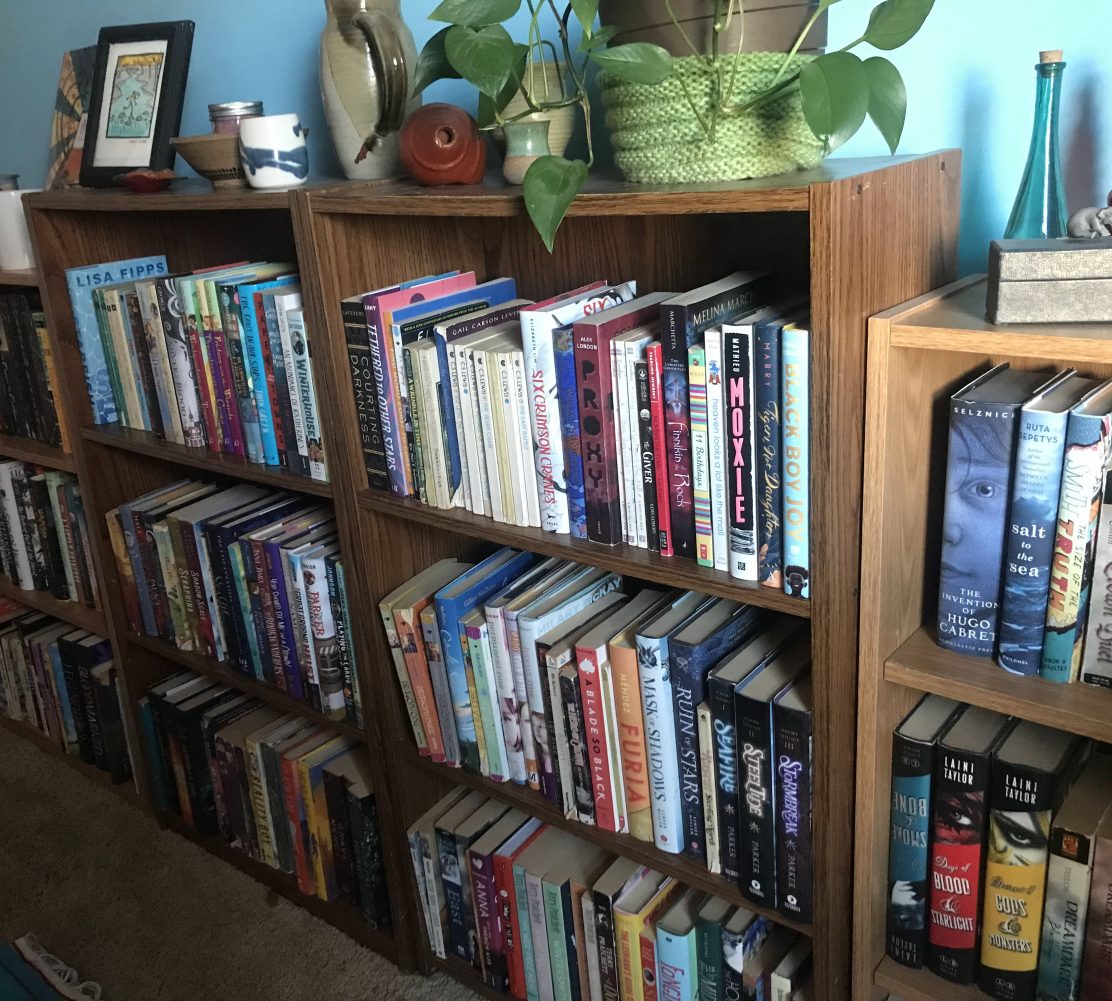by Francisco X. Stork
First sentence: “Hector could tell that Ai wanted to discuss something.”
Support your local independent bookstore: buy it there!
Content: There was a lot of violence, and some talk of drug use and addiction. There is swearing, but in Spanish. It’s in the Teen section (grades 9+) of the bookstore, but I think it’d be good for younger kids as well.
Hector lives a very small life. His father passed away a few years ago, and he and his mother, brother, and sister are all trying to scrape by. They had to move from their home and into the projects, wher ethey live next to drug dealers, one of whom, Chavo, has a beef with Hector’s brother, Fili. Hector just wants to stay out of the way. But Chavo’s brother, Joey, seeks him out to intimidate and assault Hector, and gets into Hector’s brain. Suddenly, Hector is convinced he’s not a “real man”, and when Chavo and Fili get into an altercation (over a girl), both Hector and Joey do rash things and end up in the same juvenile rehabilitation center. Hector has to deal with feelings of hate and revenge, and learn to live with them.
I struggled with this one. Stork played into all sorts of Mexican stereotypes: drug dealers, macho men who can’t deal with feelings except by drinking or through violence, women who really don’t have a say and men who fight over them. Hector has embraced this toxic masculinity and struggles against it, but fails: he has determined that the only way to “balance” things is to kill Joey. I found myself loathing Hector as the book went on; he wasn’t a fun character to live with.
And I know there are always truth to stereotypes, and books need to be written about people who struggle with toxic masculinity and come through on the other side, which Hector did. (The one thing I did like: Hector and Joey never became friends. That would have been much too maudlin.) But that doesn’t mean it was fun to read.


I am surprised by the stereotyping in this one as Stork’s other novels have been excellent.
LikeLike